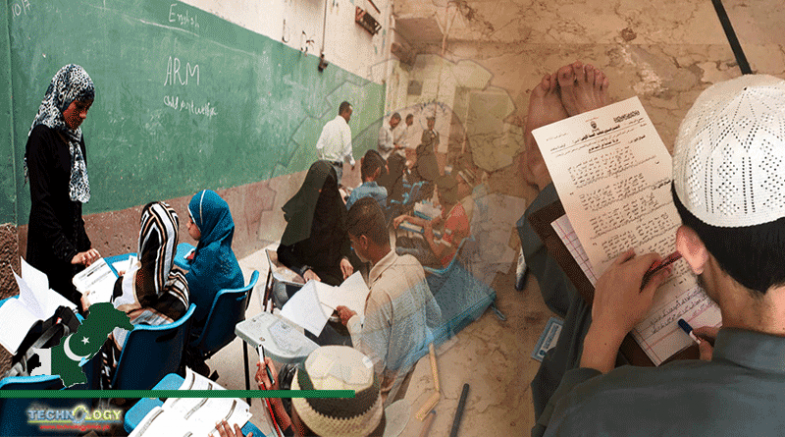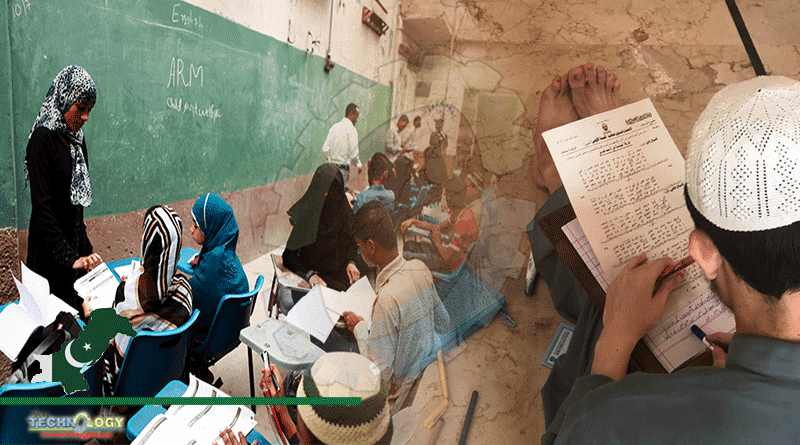There is a general perception that for the graduates of religious seminaries, there are limited economic opportunities due to their education

There is a general perception that for the graduates of religious seminaries, there are limited economic opportunities due to their education in traditional and religious disciplines. However, in a positive development, many such madrasa graduates in recent years have started taking interest in modern education along with religious studies and exploring economic prospects that are generally not considered fit for them.
A number of seminaries have also made arrangements to teach subjects like economics, including Islamic banking, and information technology along with Arabic, Islamic history and Islamic law.
Some notable madrasas, including Jamia Tur Rasheed Karachi, Jamia Al-Sheikh Karachi, Al Burhan Academy and others, also impart modern education. They have also been trying to convince their students to appear for the Central Superior Services (CSS) exams and join bureaucracy, for which they offer free classes to help them prepare for the CSS papers. In order to ensure that their graduates have required knowledge of the contemporary subjects, education till the matriculation level is mandatory in order to graduate from the seminaries functioning under the Wafaq ul Madaris Al-Arabia, Pakistan — one of the largest boards that conduct examinations of religious seminaries.
Talking to The News, Masood Ahmed Alvi, the incharge of the Tadbeer CCS programme, said he and some other like-minded teachers in 2019 started a centre named Tadbeer to prepare madrasa students for the CSS exams. The aim was to push the students into bureaucracy, he added. “We enrol only 15 students in each batch through an entrance test. After the selection and assessment process, the centre provides opportunity to the selected candidates to study free CSS classes and get a monthly stipend for meals and accommodation.”
Alvi explained that around 15 of their students had attempted the CSS exams in 2020 but they could not reach the selection level. However, some of those students later attempted other exams and many of them were appointed in grade 17. “Teaching CSS to the students of seminaries was a new experience for us. This is why our students could not perform up to the mark,” he said. However, Alvi’s venture garnered much praise across the country and prompted some seminaries to consider forming their own centres for CSS exam preparations. Currently, the two largest seminaries based in Karachi are having their teachers trained at the Tadbeer for launching their own centres.
The selection process is at the Tadbeer is very simple. Those who wish to secure admissions must be graduates from a religious seminary with a masters or bachelors degree recognised by the Higher Education Commission of Pakistan. They must also be good in English and their ages must not exceed 27 so that they could attempt the CSS examinations for at least three times.“We have more talented students who need encouragement. If our students achieved success in the future, it would set a new trend at the religious seminaries,” Alvi remarked.
Sabookh Syed, a journalist who has massively covered religious seminaries, commented that religious seminaries were introducing such reforms because they knew that the survival of their graduates would not be possible by only relying on traditional methods of teachings.
He added that the introduction of such reforms also depended on the locations of the seminaries. According to Syed, if a seminary is located in a developed or posh area, its administrators are likely to try to teach modern courses along with religious studies to attract students as well as donors.
He remarked that leaders of some religious schools of thought also believed that if they succeeded in having their graduates on bureaucratic positions, their influence would rise in the decision-making bodies.
Syed said such reforms were necessary for religious seminaries as they were losing relevance because their graduates were unable to fulfil needs of society and had no to limited role to play in the economic development.
A few years ago, teachers and students of seminaries were reluctant to use social media, the journalist recalled, saying that they were of the view that social media was unsafe. He added that now, the madrasa administrators had acknowledged the importance of social media and the seminaries were successfully using all the social media platforms. Talha Rehmani, the media coordinator of the Wafaq ul Madaris Al-Arabia, Pakistan, said the seminaries imparting religious education had their own system of education but of late, the board had been encouraging the madrasa students to get modern education. He, however, added that despite their desire to impart modern education, many seminaries could not do so due to financial constraints.
Ninety nine per cent of seminaries provide free education and they are unable to fully impart modern education along with religious studies, Rehmani maintained.
“We assist our students in getting the equivalence of their certificates they get from the seminaries and also encourage them to get modern education on the completion of Dars-i Nizami at madrasas.”
Originally published at The News
